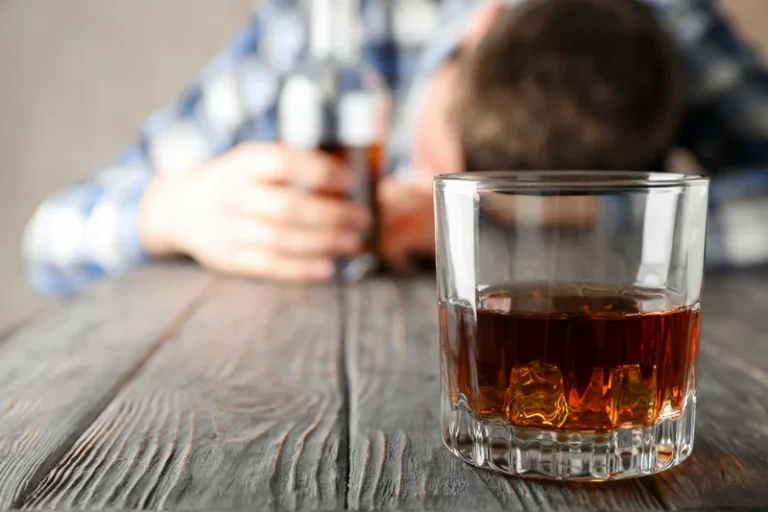
It’s important to note that having a genetic predisposition does not mean someone is destined to develop AUD or addiction. Environmental factors, such as social influences and access to alcohol, can also play a significant role. However, understanding the role of genetics can help individuals make informed decisions about their drinking habits and seek appropriate treatment if necessary. Understanding these factors can help individuals make informed decisions about their alcohol consumption and recognize the signs of being drunk. It’s essential to prioritize personal safety and well-being when consuming alcohol and to seek support if alcohol use becomes problematic.

Improved liver function
In this section, we will explore BAC levels and how they are measured. Alcohol acts as what does it feel to be drunk a depressant, affecting the central nervous system and altering brain function. It can lead to changes in mood, behavior, and cognitive abilities. The journey of being drunk can encompass a range of experiences, from feelings of relaxation and euphoria to confusion, impaired judgment, and even loss of consciousness.
Understanding the Need for Support
One notable research utilized the Five-Factor Model of Personality to categorize drunk behaviors. This model examines traits like extraversion, agreeableness, conscientiousness, neuroticism, and openness. Although recovering from alcohol addiction is a life-long journey, making it through the first year after you stop drinking is a milestone to be proud of. Alcohol and depression often co-occur together because alcohol can trigger depression due to its effect on serotonin levels, and depression can trigger alcohol use disorder. After refraining from alcohol, the levels of serotonin in the brain begin to stabilize, and your mood becomes more stable.
Poor Memory and Concentration
We recently launched our in-app chatbot, Melody, powered by the world’s most powerful AI technology. Melody is here to help as you adjust to a life with less (or no) alcohol. For a alcoholism symptoms deeper understanding of how alcohol affects the brain, you can read this article. Alcohol lowers your inhibitions, which is why you might do things while drunk that you wouldn’t do sober. You might say things you wouldn’t normally say, take risks, or behave in ways that surprise you later. As your body tries to process and expel excessive amounts of alcohol, nausea and vomiting may occur.

What are the stages of being drunk?

Not realizing how drunk you actually are, you promise to stay in touch, take your new BFF’s phone number, and head to the bathroom where you forget https://ecosoberhouse.com/ about him/her forever. When that first drop of delicious alcohol hits your tongue, your mind and body are taken to another place. Adrienne Santos-Longhurst is a Canada-based freelance writer and author who has written extensively on all things health and lifestyle for more than a decade.
- If uncertain about whether a person’s alcohol consumption is an emergency, err on the side of caution.
- No, it is not safe to mix different types of alcohol because this can increase the risk of negative side effects and lead to higher levels of intoxication.
- Remember, you don’t owe anyone a drink, and it’s OK to turn down that invite and make time for yourself, Mann wrote.
- Alcohol affects the brain and can impair a person’s ability to make sound decisions.
Immediate risks include alcohol poisoning, accidents, and injuries. Long-term risks include liver damage, cardiovascular disease, and mental health disorders. On the behavioral front, impaired judgment is a hallmark sign of alcohol intoxication. Individuals may make poor decisions, engage in risky behaviors, or act in ways they normally wouldn’t when sober. Changes in mood can also occur, with individuals becoming more irritable, aggressive, or emotionally unstable. Increased risk-taking is another behavioral cue, as intoxicated individuals may engage in reckless activities without considering the consequences.
- Being drunk is a spectrum, ranging from feeling tipsy and sociable to experiencing severe physical and mental impairment.
- Excessive alcohol consumption can intensify the impairments and increase the risk of accidents or dangerous situations.
- Discover how rehab helps drug addicts overcome addiction through trusted rehab services, therapy, detox, skill-building, peer support, and aftercare for lasting recovery.
- When alcohol enters the bloodstream, it travels to the brain, where it affects neurotransmitters—chemical messengers that transmit signals between nerve cells.
- This type often struggles with shame or denial about their drinking habits.
Seek The Joy Of A Sober Life

It’s important to note that the cognitive signs of being drunk can vary depending on the individual and the amount of alcohol consumed. Factors such as tolerance, body weight, and the rate of alcohol consumption can influence the severity of these cognitive impairments. If you’re concerned about the effects of alcohol on cognitive function or need help with alcohol-related issues, seek professional assistance. To truly grasp the signs of being drunk, it’s important to first understand the effects of alcohol on the body and mind. Alcohol is a central nervous system depressant that can have a wide range of effects depending on the individual and the amount consumed. In this section, we will explore what happens when you’re drunk and the factors that can influence alcohol intoxication.
- Testers noted its thick, gel-like consistency, with just one pump being enough to cover both the face and neck.
- By no means are we encouraging drinking, but if we’re going to do it, it’s better to be informed.
- They may appear functional during the blackout but have no recollection of events the next day.
- A 2016 study found that very intoxicated people underestimate how drunk they are, how extreme their drinking is, and how likely their drinking is to affect their health.
- Maybe you’ve seen what being drunk is like from a TV show or movie, or you’ve heard first-hand from others what it’s like.
Alcohol poisoning occurs when the concentration of alcohol in the bloodstream reaches toxic levels, shutting down essential bodily functions. In severe cases, alcohol poisoning can result in brain damage or death. Alcohol abuse and binge drinking are common, and they put many people at risk of alcohol poisoning, alcohol addiction, and chronic alcohol-related health problems. A person is sober or low-level intoxicated if they have consumed one or fewer alcoholic drinks per hour. Stress levels and mental health conditions can interact with alcohol’s effects.
Health Risks of Excessive Drinking
Offer assistance in finding a safe way home, such as arranging a sober ride or ensuring they have a place to stay. If the person becomes unconscious or displays severe symptoms of alcohol poisoning, seek immediate medical attention. It’s important to note that BAC levels can continue to rise even after you stop drinking, as alcohol takes time to be metabolized by the body. Factors such as the type of alcohol consumed, the rate of consumption, and individual metabolism can influence how long it takes for BAC levels to decrease.



